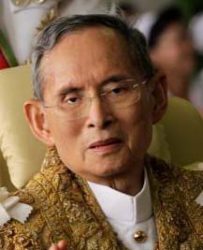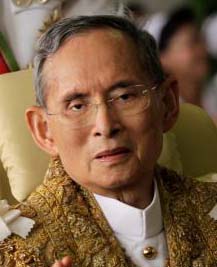BANGKOK, (Reuters) – Thailand’s King Bhumibol Adulyadej, the world’s longest-reigning monarch and a father-figure to the nation, died in hospital yesterday. He was 88.
King Bhumibol reigned for seven decades after ascending the throne in 1946, providing a pillar of stability during the Cold War, the long conflict in Vietnam and his country’s own political upheaval and rapid development.
The military government of Prime Minister Prayuth Chan-ocha, who has kept a tight grip on power since toppling an elected government in 2014, will try to allay long-standing concerns that Thailand’s sharp political divisions could worsen without the king.

The king’s son, Crown Prince Maha Vajiralongkorn, is expected to become Thailand’s new king and does not command the same adoration in the kingdom of 67 million people that his father earned over a lifetime on the throne.
Prayuth, a former army chief who staged a coup in 2014, said the appointment of a successor would be made later, and the crown prince had asked for time to mourn with the Thai people.
“When the right time comes, the crown prince confirmed that he has realised his duty and will continue to perform his duty as the heir to the throne,” Prayuth said.
A palace statement did not give a cause of death but the king has been sick in hospital with various ailments for much of the past year.
“His Majesty has passed away at Siriraj Hospital peacefully,” the palace said, adding he died at 15:52 (0852 GMT).
Prayuth, wearing a black suit and tie, urged vigilance on security in a televised address. Thailand has suffered from political violence over the past decade of upheaval, as well as bomb attacks blamed on Muslim separatists from southern provinces.
The prime minister also asked businesses to keep investing and stock market traders to maintain their holdings and not “dump” shares.
Banks and financial markets will open as usual on Friday, industry association officials said.
The Thai government, which has promised elections by the end of next year, is facing an uncertain transition period, said Lindsey Ford, director of Asian Security at the Asia Society Policy Institute.
“This period will be a challenging test of its ability to navigate an unprecedented loss and return the country to the stable footing it desires.”
More than 1,000 people gathered at the hospital where the king had been staying. Many of them started to cry as the news of his death broke.
Most Thais have known no other monarch and his picture is hung in almost every house, school and office across the country. Until his later years, he was featured on television almost every day, shown visiting poor areas and working on development projects.
Parichart Kaewsin, 35, who works in a bank, stood at the edge of the hospital garden, gazing up at the top floor of the building where the king was treated.
“I knew he was sick but I still can’t believe this day has come,” she said, choking back tears.
“That’s why I came here – to hear for myself.” She said it was like a member of her family has died, she said. “He was like our dad.”
U.N. Secretary-General Ban Ki-moon said he hoped Thailand would honour the king’s legacy of commitment to universal values and respect for human rights, his spokesman said.
U.S. President Barack Obama said the king “was a tireless champion of his country’s development”.

